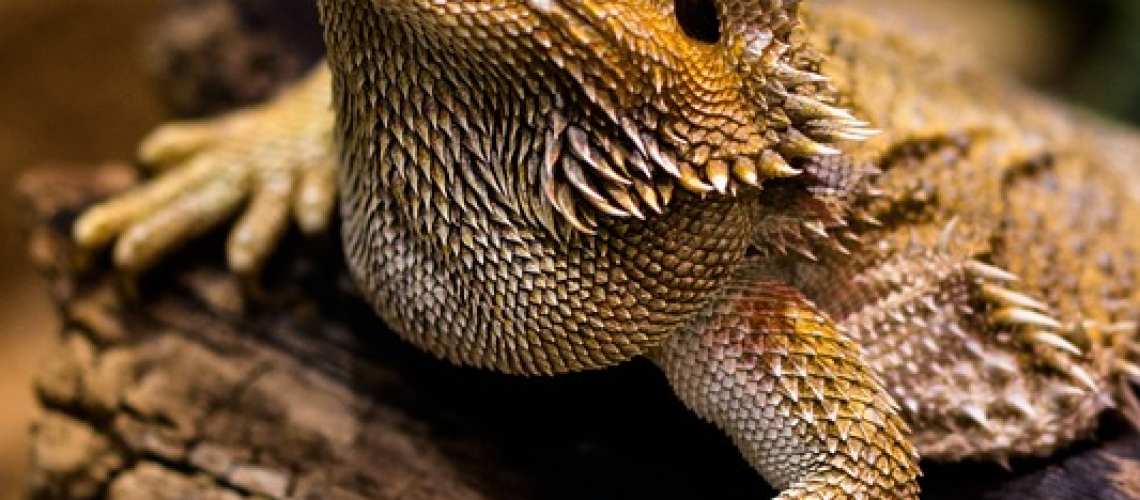Are you considering adding a bearded dragon to your family? Bearded dragons can be fun, affectionate pets with long lifespans.
But how long do they live in the wild and captivity? In this article, we’ll discuss life expectancy for bearded dragons in both wild and captive environments, common health issues that may affect lifespan, and tips to maximize life expectancy.
Key Takeaways
- Bearded dragons in the wild have shorter lifespans than those in captivity.
- Colder temperatures reduce their ability to survive.
- Lack of proper nutrition or sustenance leads to shortened life expectancy.
- Susceptibility to diseases and predators drastically reduces their lifespan.
Life Expectancy in the Wild
Bearded dragons in the wild typically have a shorter life expectancy than those in captivity. Dietary habits and temperature control can heavily influence their lifespan, with colder temperatures reducing their ability to survive for long periods of time. In addition, they may lack access to proper nutrition or sustenance, leading to a shortened life expectancy.
Wild bearded dragons are also more susceptible to diseases and predators which can drastically reduce their lifespan. Knowing this, it is important to take extra care when setting up habitats for bearded dragons in captivity if we wish them to live a long and prosperous life.
Factors Affecting Lifespan in Captivity
The main factors affecting a bearded dragon’s lifespan in captivity are diet, environment, and exercise. You’ll need to meet their dietary needs, provide the right environmental factors, and encourage regular exercise.
If these conditions are met, your pet can live up to 10 years or more. Inadequate nutrition and improper habitat can significantly shorten their life expectancy.
Take care of your pet dragon properly and enjoy many happy years together!
Common Health Issues in Bearded Dragons
Health issues commonly seen in bearded dragons include respiratory infections, parasites, and metabolic bone disease. These can be caused by dietary needs and environmental stressors not being met.
To avoid these health problems, provide adequate nutrition and create an environment that mimics their natural habitat. A healthy diet and proper environment are essential for a long-lived bearded dragon!
Tips to Maximize Life Expectancy
Providing proper care and a balanced diet can help maximize life expectancy for your bearded dragon in captivity. Make sure to provide the essential nutrition, create an appropriate habitat, and offer regular veterinary care.
All these elements are crucial for maintaining your pet’s health and long-term wellbeing. Additionally, it is important to monitor temperature, humidity levels, and other environmental factors that can impact the animal’s health.
With good care and attention, you can ensure your beardie enjoys a long and happy life!
Average Lifespan in Captivity
On average, your pet bearded dragon can live up to 8-10 years in captivity with proper care. Taking into account breeding age, enclosure size, and other factors, it’s possible for them to exceed this lifespan significantly.
To maximize their life expectancy, ensure they’re living in a habitat that meets their needs as well as providing the correct diet and regular veterinary check-ups.
With appropriate care and attention, you should be able to enjoy many happy years with your beloved pet!
Frequently Asked Questions
What Is the Best Environment for a Bearded Dragon to Live In?
For a healthy, happy life, bearded dragons need an environment that allows them to effectively socialize and regulate their body heat. Captivity is best for this, giving your dragon ample space, UVB lighting, and warm temperatures.
How Can I Tell if My Bearded Dragon Is in Good Health?
To tell if your bearded dragon is healthy, look for signs of activity like alertness and appetite. Exotic pets require special attention to reptile care; check their habitat for safety and cleanliness. Observe them for any odd behaviors or health issues, and take them to the vet if needed.
What Is the Best Diet for a Bearded Dragon?
When it comes to diet, bearded dragons need a variety of foods. Choose items like insects, vegetables, and occasional fruits for optimal nutrition. Research diet requirements to ensure proper food selection for your dragon.
What Kind of Habitat Do Bearded Dragons Need?
You need to provide your bearded dragon with the right habitat to keep them healthy and happy. This includes a temperature-controlled environment, as well as an enclosure large enough for them to move around in. With proper care, your pet will enjoy living in its habitat!
How Often Should I Clean My Bearded Dragon’s Habitat?
Clean your bearded dragon’s habitat regularly to ensure their safety, temperature control, and comfort. Handle them with care and use appropriate tools to avoid potential risks. Clean the enclosure at least once a week for optimal hygiene.
Conclusion
Overall, bearded dragons can live up to 10 years in the wild and up to 15 years in captivity. To maximize their life expectancy, you need to provide them with the right environment, diet, and veterinary care.
By understanding their needs and taking proper precautions, you can ensure that your pet dragon will have a long and happy life!






